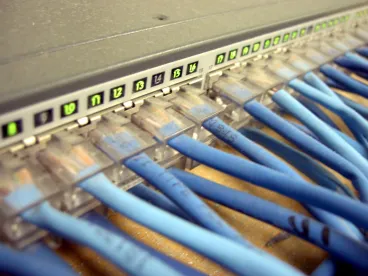911 Wireless Routing Notice of Inquiry
On March 1, 2018, the FCC released a Notice of Inquiry ("NOI") seeking guidance on 911 wireless routing delays. Currently, wireless 911 calls are configured to route to PSAPs based off of cell tower locations. In some circumstances, especially for wireless 911 calls made near jurisdictional boundaries, callers have misrouted to incorrect PSAPs, which have resulted in significant delays in dispatching aid. The NOI proposes a transition from tower-based routing to location-based routing because of recent advances in location technology. The FCC suggests the transition may incentivize PSAPs and wireless providers to upgrade to Next Generation 911 (NG911).
$954 Million to Restore Puerto Rico and U.S. Virgin Islands
On March 6, 2018, FCC Chairman Pai proposed a plan to direct $954 million to restore and expand communication networks in Puerto Rico and the U.S. Virgin Islands. This comes after the devastating effects of Hurricane Maria in September 2017, which resulted in wide PSAPs, 911 call centers, and wireless service outages. The plan would provide funding for short term broadband restoration and expand broadband service throughout the islands as the 2018 hurricane season approaches. The FCC continues to provide status reports on the public safety and connectivity conditions of the islands until communications are fully restored.
House Passes RAY BAUMS Act
The House passed the amended version of the RAY BAUMS Act, which reauthorizes the FCC for the first time in 28 years and implements process reforms. Among other things, the legislation allows the FCC to put auction deposits into the U.S. Treasury as opposed to an interest-bearing account. As we previously reported, Chairman Pai has stated that the legislative fix will allow the Commission to stay on schedule to hold an auction of 28 GHz band spectrum in November, followed by a 24 GHz band auction.
TCPA Further Notice of Proposed Rulemaking
One of the items on the tentative agenda for the Commission’s March 22 Open Meeting is a Second Further Notice of Proposed Rulemaking (FNPRM) regarding automated and prerecorded calls and texts (“robocalls”) to phone numbers that have been reassigned to new subscribers. The Telephone Consumer Protection Act (TCPA) governs the transmission of “robocalls,” and in a 2015 TCPA Declaratory Ruling and Order, the FCC confirmed that businesses must cease “robocalls” to phone numbers that have been reassigned after one call or text made in error. The FNPRM proposes to make one or more reassigned number databases available for callers to access and seeks comment on a variety of matters pertaining to administration of the databases.
Net Neutrality Update
Senator John Kennedy (R-LA) introduced the Open Internet Preservation Act, as the Senate companion to the more extensive bill introduced by Rep. Marsha Blackburn last December. The bills would prevent ISPs from throttling or blocking lawful content and require any terms of service to be made publicly available to consumers. These bills omit any reference to paid prioritization which the major broadband providers want to offer without restriction. Also last week, Washington became the first state to pass net neutrality legislation. The Washington law combines parts of the 2015 Open Internet order, publishing blocking, throttling, or paid prioritization, with the transparency rules of the Restoring Internet Freedom.
Reporting Requirements
The FCC released a Public Notice reminding ISPs and equipment manufacturer of their obligation to provide access to advance communication services to people with disabilities, and their obligation to report their efforts made on this front. Applicable entities must submit annual record keeping certifications and updated contact information, which is facilitated through an FCC web-based registry. This year, submissions are due April 2, 2018.
Infrastructure Proposal Includes $40 Billion for Broadband
Senate Democrats released a $1 trillion infrastructure package, setting aside $40 billion specifically for broadband deployment. This comes after the Trump Administration allocated $200 billion in federal infrastructure funding, which Senate Democrats have deemed insufficient. The $40 billion would include direct federal grants distributed through the Universal Internet Grant Program with the aim of closing the “last mile” gap. Advocates say the proposal would create more jobs and build more national projects.







 />i
/>i

